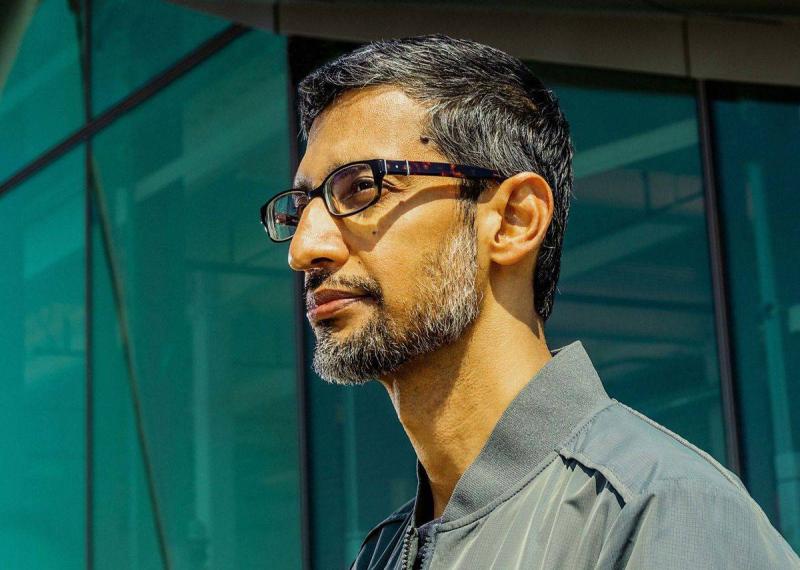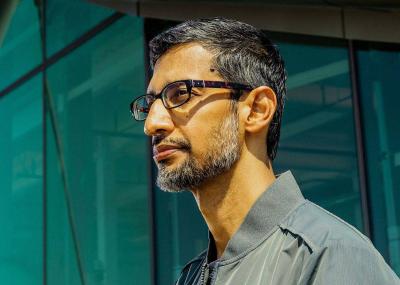A year ago, Sundar Pichai, the CEO of Google, pledged that his company would eliminate carbon emissions from its offices and data centers over the next decade. This means that every search through Google, every email via Gmail, and every YouTube video will be performed throughout the day using only locally sourced clean energy, marking a significant achievement in the corporate world. Google is following a clear path in some areas. For instance, in Bay View, its latest campus in Mountain View, California, expected to open next year, solar panels are integrated into the buildings in a design that Google calls "Dragonscale." It also expects to generate nearly 90% of the energy it needs without emitting greenhouse gases, particularly after purchasing a huge amount of renewable energy in South America and Europe, including a deal for a towering 92-megawatt offshore wind farm off the northern coast of Belgium. However, Google needs to rely on some energy sources and technologies that do not yet exist in other places.
Bloomberg Green extensively covered Google's plans to decarbonize and the challenges it faces in its latest issue, having met with Pichai in September, who also serves as the CEO of Alphabet, Google's parent company, to discuss the company's efforts. Pichai sees the shift towards carbon-free energy as a "creative opportunity" that could enhance Google's future business, especially in cloud computing, although he also acknowledges that achieving this goal might require unprecedented sacrifices from the company.
He also discussed his views on the climate crisis, conversations with other business leaders, the criticism Google faces for its work with oil and gas companies, and the legacy he hopes to leave for his children. The conversation has been edited and condensed for brevity and clarity as follows:
**What are you trying to achieve in this new campus?**
We, as a company, have cared a lot about our own spaces. Initially, we adopted the view that designing vast spaces can significantly impact productivity and culture. Therefore, many details of this building illustrate that we are doing things right, creating this wonderful, expansive space with good lighting. But as part of that, we wanted to set an example in sustainability. In a way, you can think of technology as an open source. When an open-source program is released, we all build upon its foundations. Thus, we are doing visible things, sharing everything about how to do it. I believe this will be replicated and adopted, and we will learn a lot as well. The fact that it is possible to build a beautiful building cost-effectively while achieving significant energy savings—showing that everything is doable—has been a huge part of the sustainability effort.
**What are your thoughts on the wind farm in the North Sea, which helps power Google's data center in Saint Ghislain, Belgium?**
This wind farm consists of over 40 wind turbines and is located about 23 kilometers from the Belgian port of Zeebrugge.
**Are you concerned about the costs?**
Relying on renewable energy is a giant leap, as we define it. So, it’s a bit daunting, as we don’t have all the complete answers needed for such a leap. But if you look back at the time when we made all these massive purchases of wind and solar power, I would say cost was a concern. Over the past decade, the cost of wind energy has fallen by 70%, and solar energy has dropped by nearly 90%. So we are somehow betting on this technology curve, which provides us with comfort. If you are still at the beginning of investing or technology, you need to realize that things take the shape of a curve.
**What is your response if Wall Street says you are investing too much money in these matters?**
First and foremost, on a practical basis, I believe our employees demand these things because they are valuable, and they have been part of our narrative. In general, they will help us attract and hire the best talents over time. This is one example of a project's feasibility study. However, honestly, I would say when you are working on such technologies and conducting this kind of research and development and innovation, you will only witness more diverse benefits for your project. Our discovery of how to cool our buildings more efficiently seems to be becoming a cloud offering over time. We use artificial intelligence to manage loads across data centers and to improve cooling. All of these matters will find their way into the businesses we conduct through Google and Alphabet. Therefore, I believe that investing in stronger technological innovation will yield a positive return on investment over time.
**Are you optimistic about the climate crisis?**
I am optimistic. But I feel an intense stress and concern because we are losing time.
The good news is that people are more aware of the climate crisis than before, which I feel strongly. The bad news is that some of this awareness comes at a time when people see real examples of this kind of interconnected climate events. I wish we had reached this moment a decade ago.
However, having said that, I feel optimistic during moments when I realize there is a turning point; the next generation views this crisis fundamentally as a different priority, which gives me long-term optimism. But the concern comes from the fact that we are indeed in a pathetic scientific situation, and that is the most urgent matter. When I look at what has happened in the past decade, and I gave you an example of wind and solar energy and how they have changed over ten years more than we anticipated.
**Do you find this topic in discussions with other business leaders? What do those discussions look like?**
Ironically, the topic of sustainability in most discussions with other CEOs—a part of a cloud services project or something like that—actually comes in on the agenda of nearly every CEO of every company we work with.
**When did this change?**
A sharp change has occurred, and I felt it over the past 18 to 24 months. There are real discussions about environmental, social, and governance disclosures, as people want to understand how we are doing it. They are all trying to figure out how to make commitments and ensure that they can deliver valuable work. These are significant and high-priority discussions right now.
**What would you say to another company wanting to eliminate carbon emissions but does not have your market value or engineering talent?**
I would point out a few things. I fundamentally feel they should do it anyway over time, and thus, it’s essential to embark on the journey early. It is an opportunity for innovation, a chance for cultural transformation—the idea of doing something innovative changes one's organizational mindset. And for those looking to transition, it is indeed a genuine opportunity. If you don’t do this right, you won’t be able to attract talent over time.
**Do you see that in the data?**
Practically, I don’t know if we will see anything if we didn’t do what we have done, but I believe we will see an impact. It’s a good question. We haven’t done A/B testing, but when I look at younger generations—those in their teens now—I don’t find that they are choosing to work for a company they feel is polluting the world. I believe that human mentality will change.
**On this topic, how do your children feel about this issue?**
This is a big topic. There was a pivotal moment about a year ago during the wildfires in California Bay. We discussed this a lot, and they asked many questions. It is our opportunity to change the world for the better for the next generation. So I feel this is a moral duty, and every parent will largely have the same feelings.
**Have employees criticized your work in cloud computing with oil and gas companies? Do you see this criticism as counterproductive to your goal of working 24/7 for?**
We work with companies across all sectors, and we have clear policies for acceptable use, and we have articulated principles for AI. In fact, I feel it is important to help leading companies assist their partners and aid the energy industry’s transition to renewable energy, and AI will play a role in this regard.
**Do you believe they are moving fast enough?**
You can encounter many different people at various stages of the journey, but some people are seriously considering the transition. I think policy will be a key factor in this, so we have called for policies to set more effective emission reduction targets, etc.
We work with energy companies through cloud services, and revenues coming from these companies likely represent much less than 0.1% of our revenues, but I believe it’s important for many of them to consider transitioning when officially presenting technology. We want to play a role in this transition.




